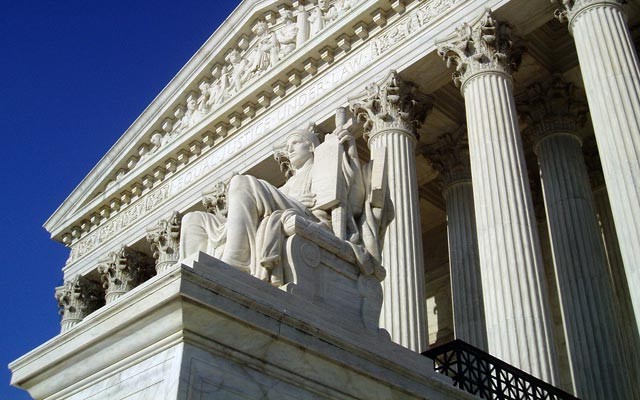The Supreme Court’s decision to temporarily block parts of Texas’ sweeping abortion law means some clinics that have closed in recent weeks can legally reopen. But, still, the back and forth that has taken place in the courts over the last few weeks has created a sense of confusion for women seeking abortions and permanently impacted access.
The 13 clinics that closed earlier this month after the Fifth Circuit Court of Appeals allowed Texas to enforce the law’s ambulatory surgical center requirement statewide, and the admitting privileges requirement at a McAllen clinic and one in El Paso, now have the opportunity to reopen, but it’s unclear how many actually will. And even so, it’s next to impossible to reopen every clinic overnight.
According to several reports, some clinics have plans to open their doors again, while others won’t. RH Reality Check has an updated map of abortion clinics in Texas.
Whole Woman’s Health, which operates an ambulatory surgical center in San Antonio, will reopen its McAllen doors today. The law forced the clinic to close earlier this year, but then it reopened in September when a lower court blocked provisions from taking effect. It closed once again a few weeks later when the Fifth Circuit gave Texas the green light to enforce the law anyway, but Tuesday’s news allows it to reopen for a second time.
Now, Amy Hagstrom Miller, CEO and president of Whole Woman’s Health, said staff in McAllen are able to see south Texas women, who would’ve had to travel 500 miles round-trip to San Antonio for their abortions.
“The back and forth has been one of the most difficult variables for us over the last year,” she said. Whole Woman’s Health staff in San Antonio “were able to reschedule a few patients from San Antonio, and call them and let them know they could be rescheduled in McAllen” and not have to travel after all.
Misty Garcia, San Antonio-based board member of the Lilith Fund organization that provides financial assistance to women who can’t afford their abortions, said women who call the hotline for help have expressed confusion for weeks about the law, wondering if they’ll be able to get their procedures. With things changing so quickly in the courts recently, it’s hard to know what’s going on.
“Access is still really limited,” she said. As we wrote back in this week’s print issue, Garcia has spoken with women from different parts of the state who tell her they are struggling to afford their abortions.
Mara Posada with Planned Parenthood in San Antonio said over the last year, calls to Planned Parenthood’s clinic from patients outside the county have increased. While it’s difficult to attribute the increase to the recent court rulings, she said staff has heard more confusion and questions among patients seeking abortion care in the last few weeks.
“There is confusion out there as far as which clinics are still open, which are providing abortion services,” Posada said. “Every time that there’s a ruling ... I think that can be challenging as far as patients go and whether or not they know that we’re still here for them.”
Posada said she hopes Planned Parenthood’s forthcoming surgical center will be complete by the end of the year. In the mean time, the organization has been scheduling patients at their Babcock Road clinic for things like consultations and sonograms and then Planned Parenthood staff perform abortion services at leased space in an existing surgical center. Posada said that with the latest SCOTUS ruling, the organization is weighing its options in terms of scheduling abortion services at the clinic itself. Posada said Planned Parenthood won’t end its lease agreement with the local surgical center because of the possibility that the Fifth Circuit would rule in favor of the state.
“We are looking at that possibility, right now it depends on the need,” she said. “We are doing everything that we can to ensure that no matter what happens with the legal ruling, we are still able to provide that care to patients.”
The legal relief from the law is only temporary. After all the recent back-and-forth in the courts, the law, and the future of abortion access in Texas, is back in the hands of the Fifth Circuit Court of Appeals, which still must consider Attorney General Greg Abbott’s appeal for the lower court’s decision that found the the law unconstitutional. Briefs from lawyers on both sides of the case are due on December 8, and the hearing will be scheduled some time after.
This was the second time lawyers had asked the nation’s high court to step in and block major provisions of House Bill 2. Last year, though, SCOTUS refused to intervene and stop the admitting privileges requirement from taking effect statewide. This time, though, six justices ruled in favor of Texas abortion providers, something that seemed to shock everyone involved. Linda Greenhouse, who writes for The New York Times, explored the potential reasoning behind the decision in a recent column, along with other significant SCOTUS maneuvers.
Esha Bhandari, attorney with the Center for Reproductive Rights representing abortion providers in the case, said it’s hard to know why the high court went a different direction and ruled in the plaintiffs’ favor this time. In their order issued Tuesday, the justices offered no explanation for their decision.


